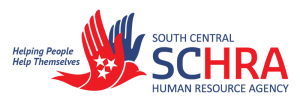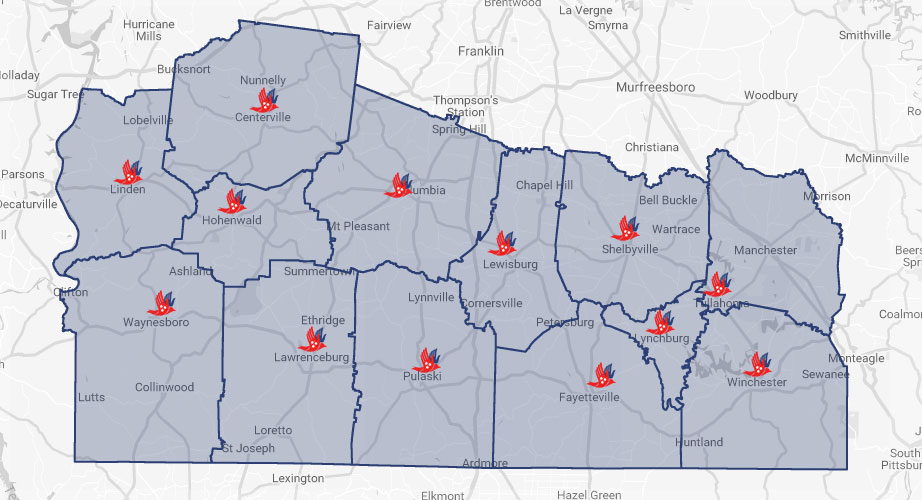All services listed below are subject to eligibility criteria established in the currently approved CBSG Operational Plan.
Contact your local Neighborhood Service Center for details.
Periodic counseling of unemployed or under-employed participants, including help with job hunting skills. A job search tip booklet will be provided to the participants. Each office will maintain a current list of jobs that are available in the county. The client will be notified of any job openings in the community for which they might qualify for.
Contact Information
- Jeana Mills
- Community Services Director
- jmills@schra.us
- 931.433.7182 Ext 1126
Individuals will receive assistance to prepare their federal annual income tax reports or may receive educational information and help with family budgeting through the Income Management component. Assistance will ensure measures that will help the family make sure they are receiving the credits and benefits they qualify for on their income taxes. It will help assist families in being able to manage what resources they have available.
Household financial counseling will be provided to families with instruction on preparing and implementing household budgets.
Assistance will be provided (if funding is available) for the basic needs of elderly and disabled and will be provided only once during the contract year. Payment in the amount necessary to alleviate the crisis will be issued to the landlord, grocery store, drug store, energy supplier, vendor etc. on behalf of the eligible household. No payment will be made directly to the individual. Efforts will be made to assist families working toward the prevention of these emergencies in the future. The family must have an eviction notice or cut off notice along with an uncontrollable circumstance.
For CSBG Emergency purposes uncontrollable circumstances are:
- Elderly – 1 member of household who is 60 or above
- Child in the Home under 6
- Disabled – 1 member who is documented as disabled (must be receiving disability benefits or show documentation that they have applied for disability, or a doctor’s statement that says they are unable to work).
The maximum amount of financial assistance a household may receive under this component is $300.00 per fiscal year. If the emergency need exceeds $300.00, payment from CSBG funds will not be approved until necessary payment has been made by applicant or another source to ensure that the crisis will be alleviated.
Home Delivered Meals are designed to ensure that the nutritional needs of the elderly population who has limited mobility due to various physical problems which may impair their capacity to shop and cook are met. Meal deliveries will be assigned through each Nutrition meal site for an assigned route in each county.
As part of the Nutrition component, home delivered meals will be purchased (as long as funds are available) through SCHRA’s Nutrition Program for elderly and disabled CSBG individuals who are not currently being served through one of the Options/Choices or Title III programs but has a need. In addition, nutrition salaries will be supplemented to ensure that congregate meals sites remain operational.
Commodity applications and distribution in each county are coordinated through the Emergency Food Assistance Program. This program provides much needed staple food to eligible clients, and allows them more available income for other living necessities.
Companionship Assistance is provided with the intent of assisting aged or disabled individuals to maintain an independent living situation. Priority for service will be given to DHS Protective Service clients who are CSBG eligible. Companionship will be provided weekly or every two weeks, depending on need. All individuals requesting service will be notified of his/her eligibility status with 30 days.
The need for dental, vision and health care assistance ranked high on priority in the Community Needs Assessment. Health Assistance will be provided with the intent of assisting aged or disabled individuals to apply for Medicare Part D Low Income Subsidy, as well as providing them with general Medicare information. Assistance with applying for QMB and SLMB is provided also. Transportation to doctor’s appointments for elderly and disabled individuals may be provided under the Health component.
Payment for medically necessary items such as medicine, doctor bills, glasses and dental work may be provided in the Health component. The maximum financial benefit a household may receive under this component is $300.00 for health and vision and $750.00 for dental.
In order to truly incorporate the 2Gen approach to assisting our clients change the future of their family. SCHRA will be implementing the self-sufficiency component this year. Case management will help clients achieve self-sufficiency through goal-oriented action and guidance. CSBG funding will be utilized for family stabilization and to help alleviate barriers to employment and self-sufficiency.
SCHRA will work with households referred by our NSC Client Advocates through case management and assist them in any way possible to become stable. Barriers will be addressed and financial assistance may be provided if the need necessitates. For example; if a person has a felony on their record that is preventing them from obtaining employment and it can be expunged, CSBG funds will be used to pay to have the record expunged. The maximum financial assistance that a household may receive during the fiscal year is $750.00.
To contact SCHRA for the consideration of a Community Service Block Grant, fill out the form on the page below or refer to the information on the front of this page.

